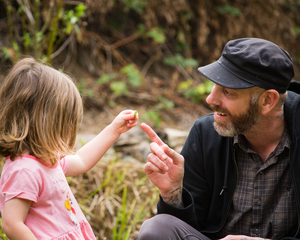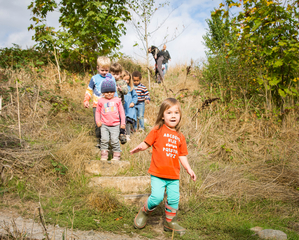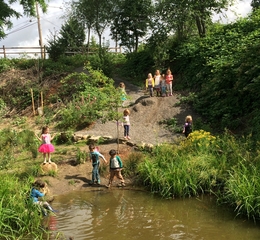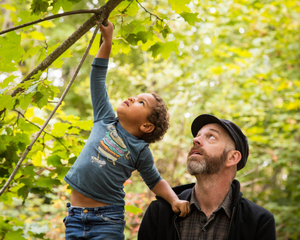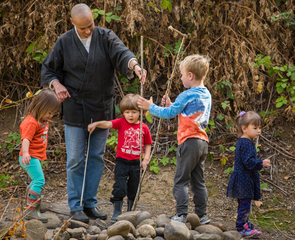Lately, some Frog Song children (notably, those with older siblings in public school) have started asking to go outside for “recess.” As much as we know what they mean, “recess” we generally use the phrase “time outside” in place of “recess.” For children, of course, words don’t tend to carry much baggage; they just describe the object, attribute, or experience they’re connected with. Still, for those of us who grew up with an understanding of recess as a time when we could literally “recede” from the rest of the school day, the semantic difference offers a little reminder that we’d like to build a different experience for these children.
So, what does everyone do when we’re outside?
At Frog Song, everyone goes outside after lunch. Since everyone finishes lunch at a different pace, we don’t wait until the whole class has finished (or been required to stop) eating lunch. Rather, once about a third of the class has eaten the right amount for their bodies, packed up their lunches, and cleaned up their table, one adult takes a first group outside. This allows everyone to get just the right amount of food (and spend the right amount of time talking with friends!) before coming onto the playground. Except for nappers, everyone spends at least an hour outside every day. Depending on moods and weather, many children spend quite a lot more.
They play as a big group]
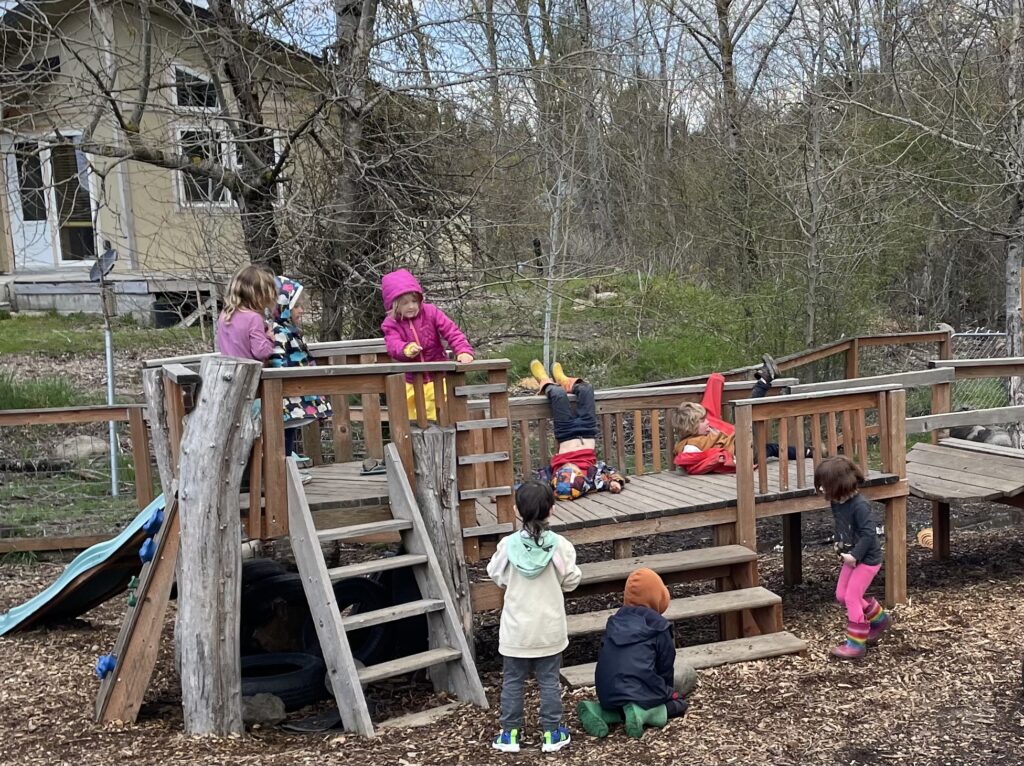
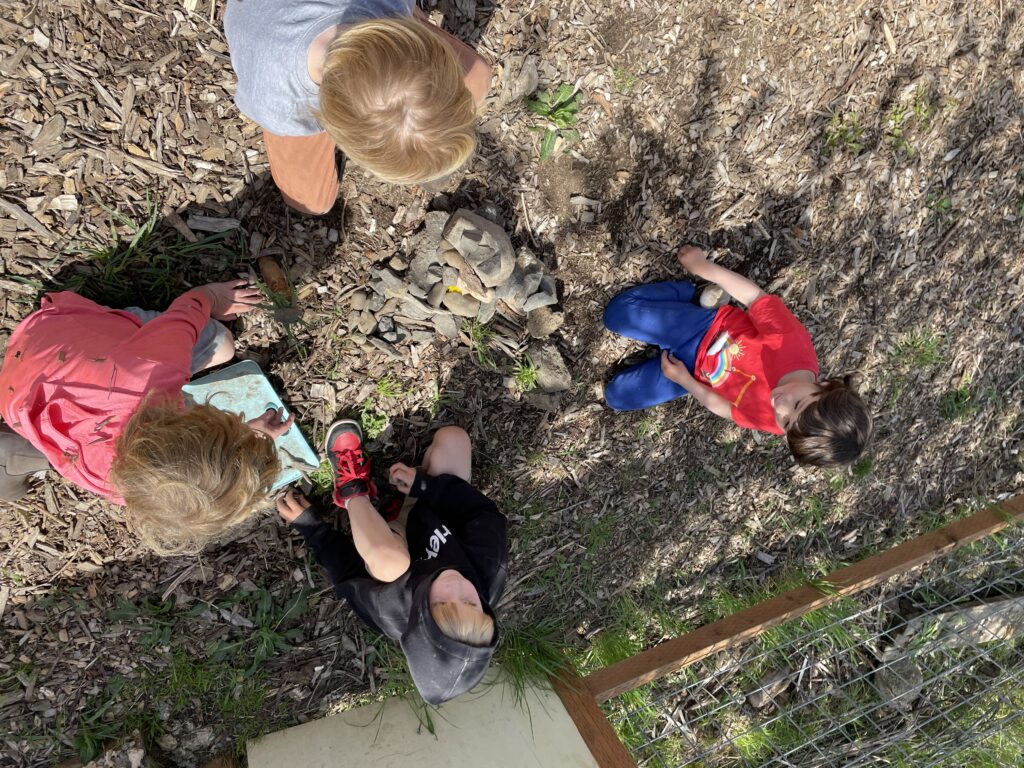
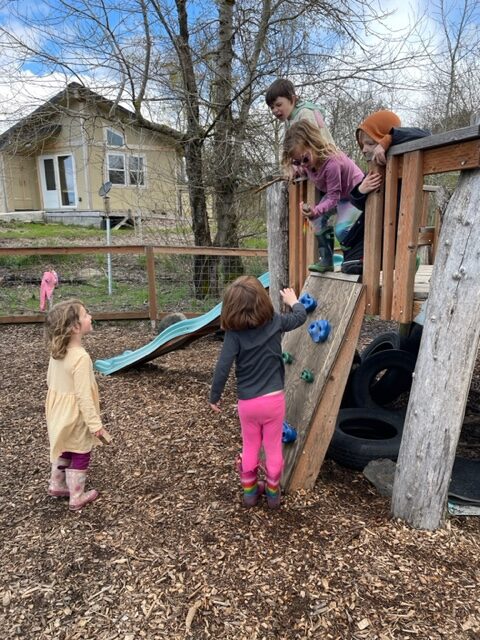
They break off on their own imaginary endeavors
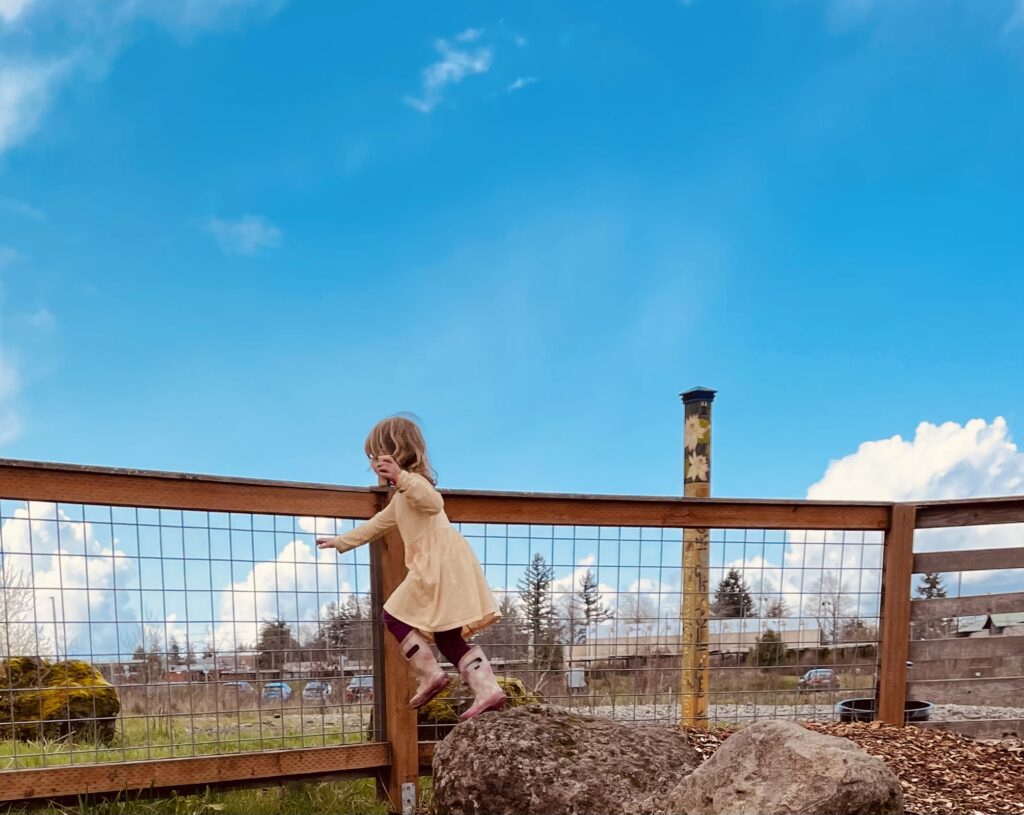
They teach each other to do new things
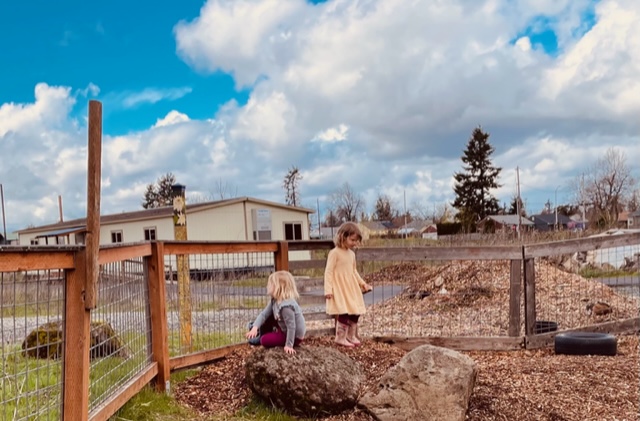
They comfort each other
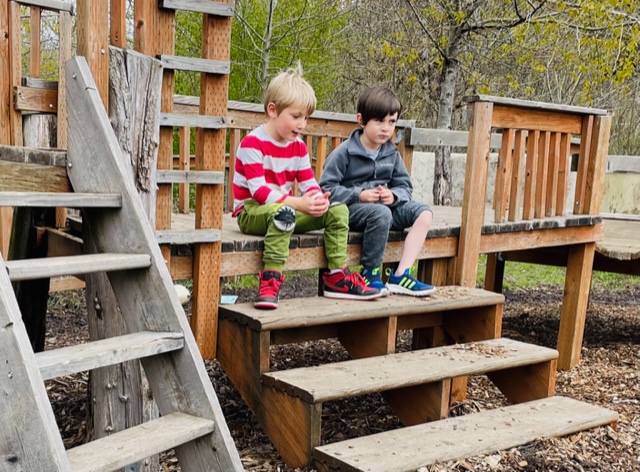
And they just hang around
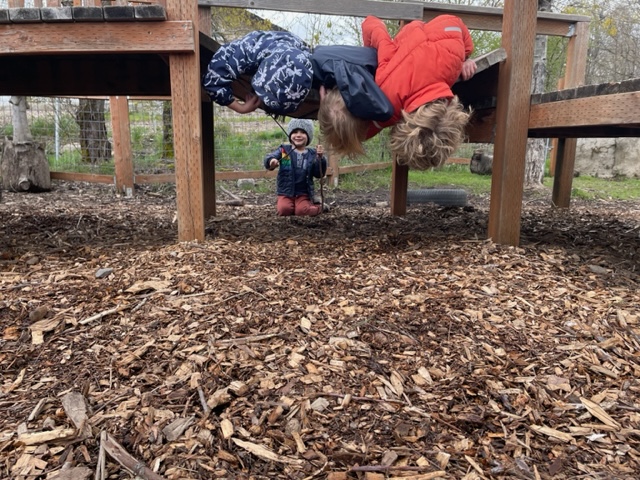
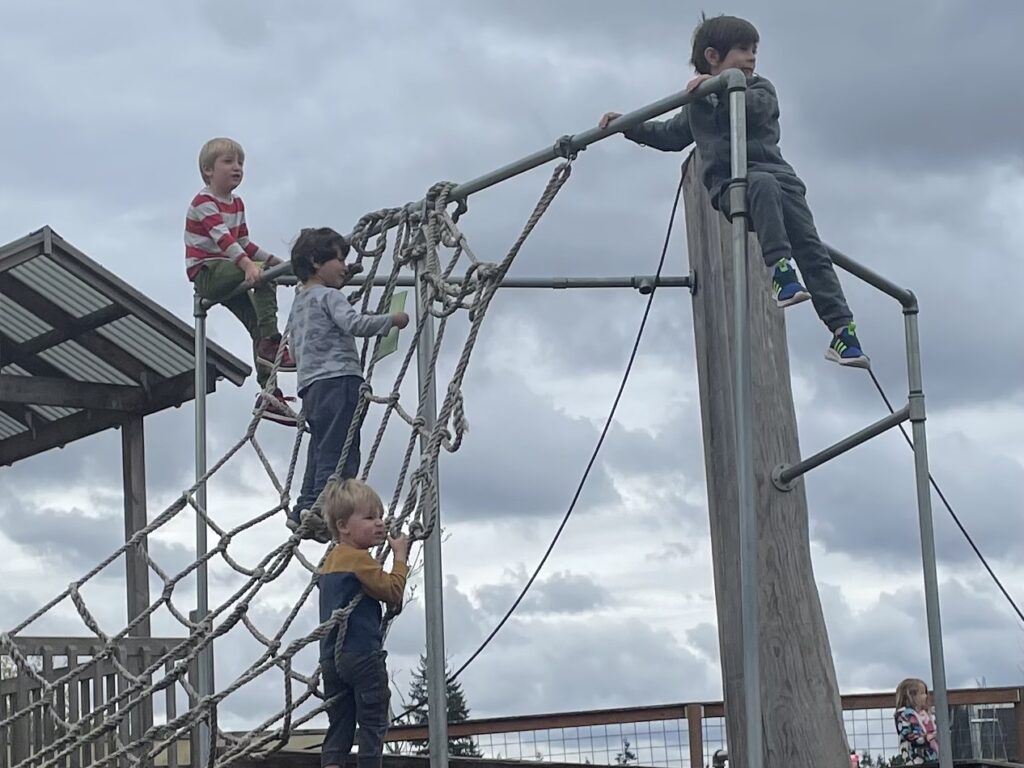
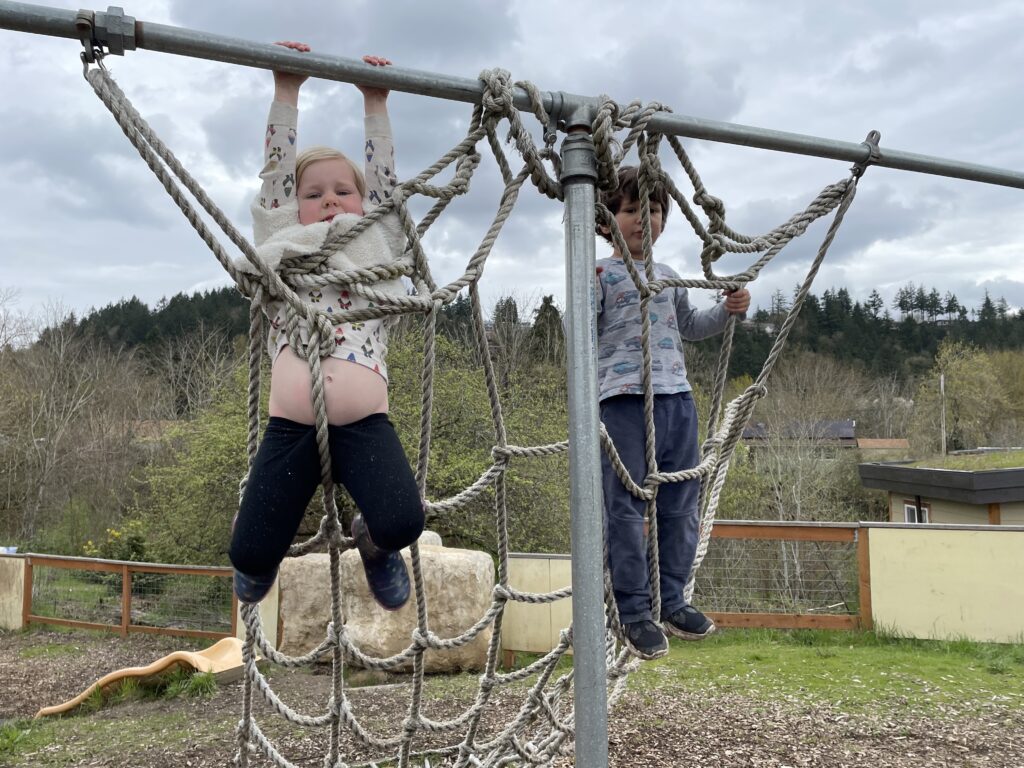
More recently, many of the children who were once content to be instructed on what roles to take, or more committed to observing from the periphery, have jumped into taking a more active role in directing the play. The children who came into this year as leaders have handled this with surprising grace, stepping back and letting their friends change the direction of the game.
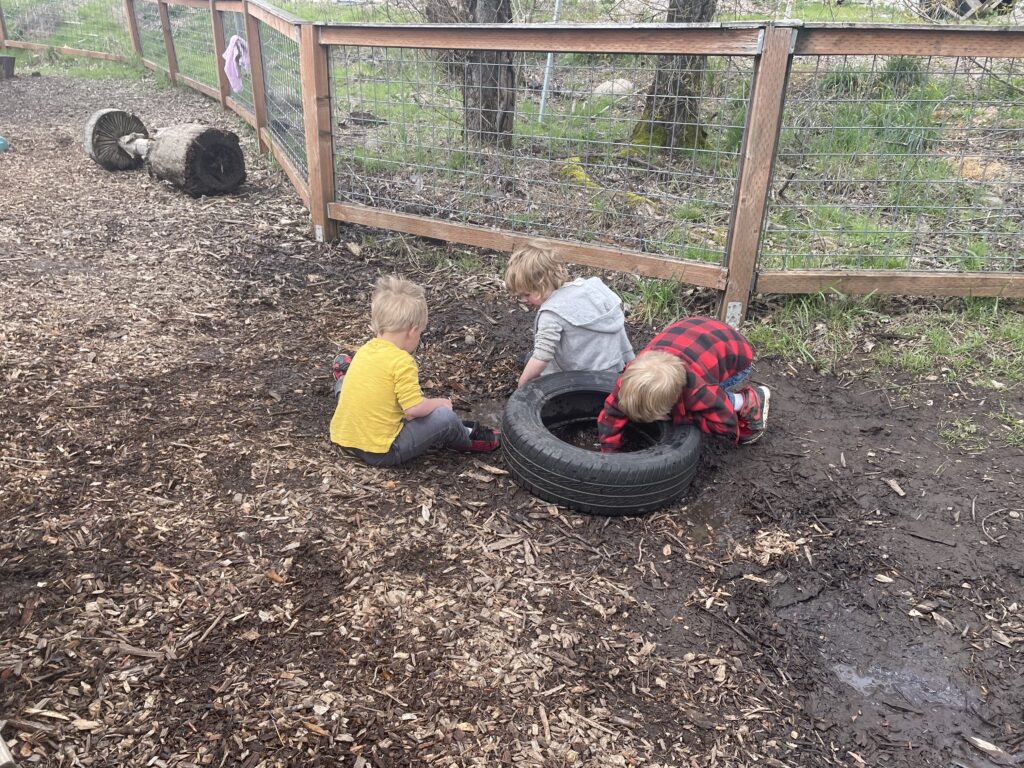
Montessori education centers on freedom for the children within guiding limits set by adults. These limits are much less evident (and also, probably fewer in number) on the playground than they are in the classroom. This leads to exploration, of course, but also to conflict. As a parent, it can be so difficult to hear about conflict, aggression, and disappointment children experience with their peers! These feelings are a part of most of our own daily experiences, and the playground is a laboratory where children do the work of testing and refining their limits and their comfort levels, seeing how their actions are perceived, and learning to observe and match their friends’ behavior.
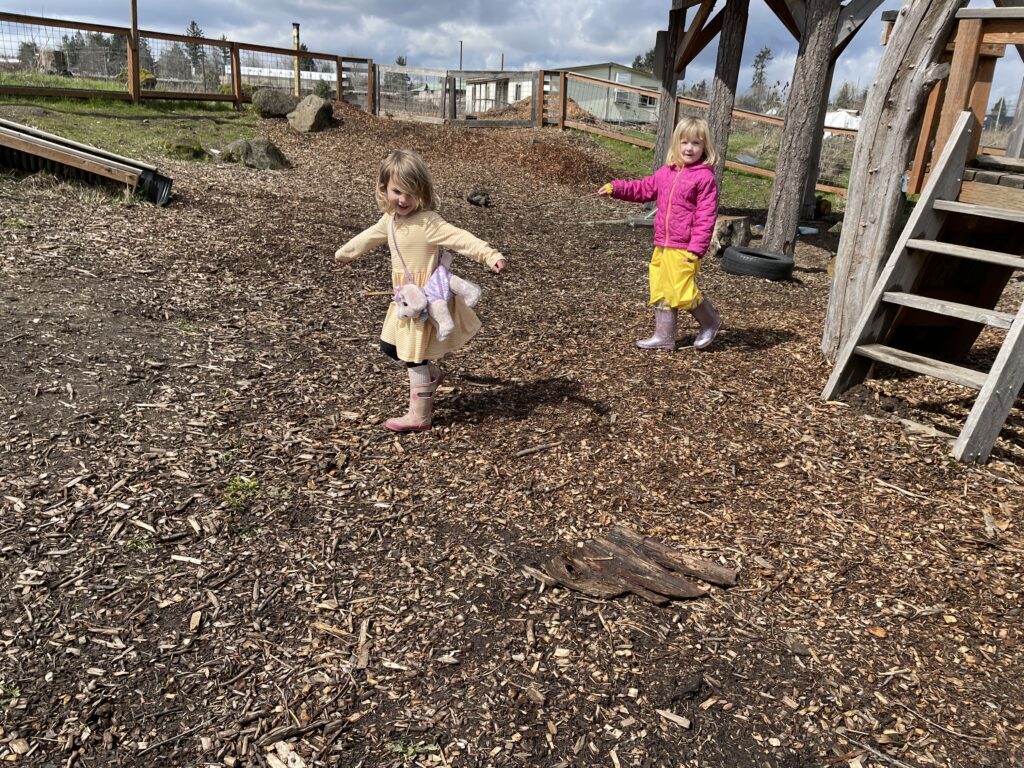
As adults at Frog Song, we set limits around physical play for children (tagging and hugging should be consensual, wrestling is always a no-go), and, since the winter, have banned play based on weapons, zombies, jail, and some other topics that seemed frightening across the board. This created a great sense of relief among most children, consternation for a few, and a big explosion in the subject matter of play!

